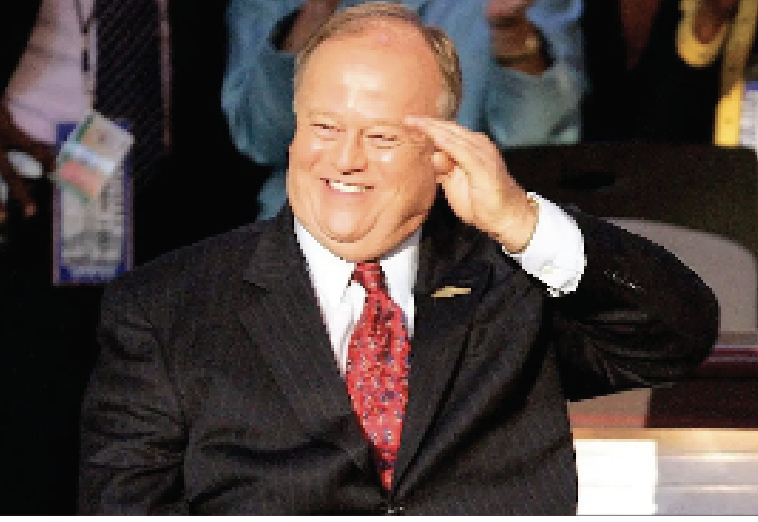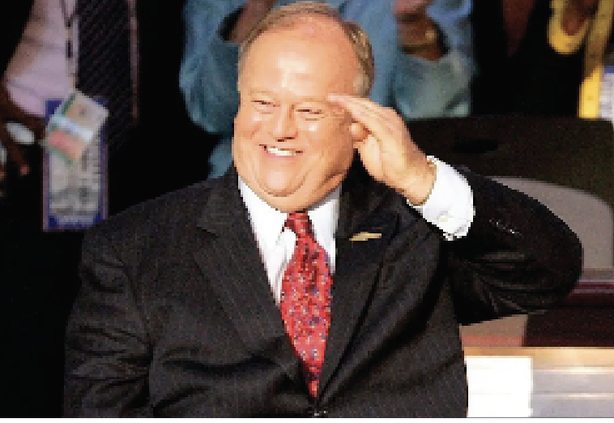One of the many authors I came to see that day in 2010 was sitting outside and sweating in the hot August sun on the Decatur Square when I arrived.
The heat bothered me as I hiked from my car and tried to gain some composure in preparation for interviews during an event featuring top Georgia authors.
This was a pleasant surprise, though, to come upon such a prominent person and able to speak freely with him without public relations agents redefining his every word to gain the best publicity for his book.
I guess the heat bothered this author somewhat as he sat in his wheelchair, but it was nothing compared to what he had gone through in the jungles of Vietnam or on the campaign trail in an unsuccessful bid for re-election against a candidate hand picked by Karl Rove to tell the world how “unpatriotic” a triple amputee Vietnam veteran was.
I met Max Cleland, who died Nov. 9, just after the paperback release of his autobiographical book “Heart of a Patriot: How I Found the Courage to Survive Vietnam, Walter Reed and Karl Rove.”
The event was for the release of Georgia Center for the Book’s “25 Books All Georgians Should Read.” The former senator’s book was on the list and he shared the stage inside a crowded restaurant with some other Georgia authors — fairly well known if you hang around Amazon’s book list or listen to NPR. Roy Blount Jr. of “Wait, Wait, Don’t Tell Me” fame was likely the best known of the others at the event.
Cleland, though, stood out in more ways than the obvious — a triple amputee and former U.S. and state senator and longtime Georgia Secretary of State.
The Lithonia native was politically prominent but was the kind of man who’d make you feel like you’d known him all your life. He recalled growing up in the south DeKalb town at a time when it was out in the country and was the site of dairy farms, before I-20 helped bring industry and Walmarts and shopping malls.
Cleland was like many young men from Georgia in the 1960s — God-fearing and patriotic, ready to serve his country when called. As the young soldier jumped off a helicopter during the battle of Khe Sanh, a grenade another soldier had dropped exploded, shredding both legs and an arm.
He returned to the U.S. missing three limbs and was confined at Walter Reed Army Medical Center for months where doctors didn’t give the wounded veteran in his mid-20s much hope of living an active life. At that point, he could have retreated into a life of despair, depression or addiction as so many Vietnam veterans did following that horrific blunder by our nation’s leaders, but he didn’t.
Instead, he learned how to be mobile and went after his desire to be a public servant. Cleland became the first Vietnam vet to serve in the Georgia State Senate. Former governor Jimmy Carter was elected president in 1976 and appointed Cleland to lead the Veterans Administration.
He went on be elected the youngest secretary of state in Georgia history — long before the controversies surrounding the digital problems with today’s elections — and served 14 years in the post. In 1996, he was elected to the U.S. Senate.
But by his 2002 reelection campaign Republicans Saxby Chambliss singled him out as “unpatriotic.” Cleland began a personal tumble that included a return of long-dormant case of Post-Traumatic Stress Disorder and he returned to Walter Reed as a patient decades after his stay there in the 1960s.
He recovered, thankfully, with the help of other veterans and lived out his life as an elder statesman, including helping advise now-Sen. Jon Ossoff in his 2020 campaign to become one of the first two Georgia Democrats elected to the U.S. Senate since Cleland himself.
Cleland showed anyone that setbacks and obstacles, both mental and physical, can be overcome. It’s an example we all could learn from.
Tom Spigolon is news editor of The Covington News. He may be reached at tspigolon@covnews.com.





